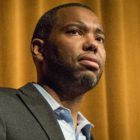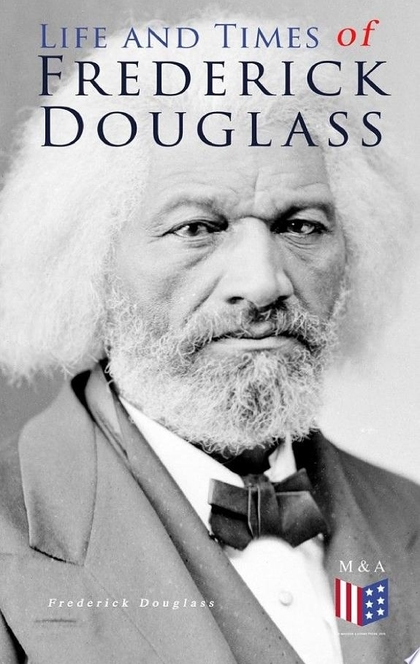
Ta-Nehisi Coates Favorite Books - 25 Recommendations
Ta-Nehisi Coates
Ta -Nehisi Coates reading list of 25 favorite books. Ta -Nehisi Coates recommended books.
We've made the largest compilation of Ta -Nehisi Coates book recommendations from various interviews, articles, and lists.
In 2015, The Atlantic journalist Ta-Nehisi Coates won the U.S. National Book Award for Nonfiction for his book 'Between the World and Me.' His keen mind, detailed journalistic approach, and profound sincerity have made him an amazing author and opinion-leader of our time.
It only makes it more interesting to find out what stories stun Ta-Nehisi Coates, what people inspire him, what books enrich his library, and what reads he loves so much he is eager to recommend them to the world.
Check out the biggest selection of Ta-Nehisi Coates favorite books - 25 recommendations!
See all
0
likes
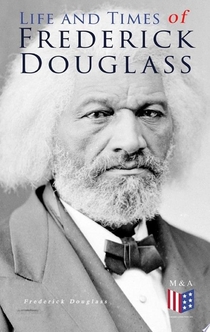
Life and Times of Frederick Douglass
The final of three autobiographies written by the famed abolitionist, and my personal favorite. Epic and sweeping in scope. The chapter depicting the bounty of food on which the enslavers feasted while the enslaved nearly starved is just devastating.
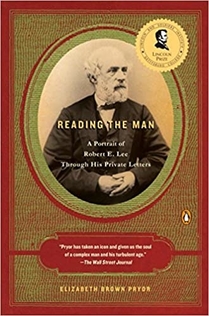
Reading the Man
Elizabeth Pryor’s biography of Lee, through Lee’s own words, helps part with a lot of stupid out there about Lee—chiefly that he was, somehow, “anti-slavery.” It dispenses with the boatload of stupid out there which hails the military genius of Lee while ignoring the world that all of that genius was actually trying to build.
See all

Grant
Another classic in the Ron Chernow oeuvre. Again, eminently readable but thick with import. It does not shy away from Grant’s personal flaws, but shows him to be a man constantly struggling to live up to his own standard of personal and moral courage.

A Distant Mirror
I’ve been thinking about Barbara Tuchman’s medieval history, A Distant Mirror, over the past couple of weeks. The book is a masterful work of anti-romance, a cold-eyed look at how generations of aristocrats and royalty waged one of the longest wars in recorded history, all while claiming the mantle of a benevolent God.
See all

Out of the House of Bondage
The plantation household was, first and foremost, a site of production. This fundamental fact has generally been overshadowed by popular and scholarly images of the plantation household as the source of slavery's redeeming qualities, where 'gentle' mistresses ministered to 'loyal' slaves. This book recounts a very different story. The very notion of a private sphere, as divorced from the immoral excesses of chattel slavery as from the amoral logic of market laws, functioned to conceal from public scrutiny the day-to-day struggles between enslaved women and their mistresses, subsumed within a logic of patriarchy. One of emancipation's unsung consequences was precisely the exposure to public view of the unbridgeable social distance between the women on whose labor the plantation household relied and the women who employed them. This is a story of race and gender, nation and citizenship, freedom and bondage in the nineteenth century South; a big abstract story that is composed of equally big personal stories.
See all

Ida: A Sword Among Lions
Pulitzer Prize Board citation to Ida B. Wells, as an early pioneer of investigative journalism and civil rights iconFrom a thinker who Maya Angelou has praised for shining “a brilliant light on the lives of women left in the shadow of history,” comes the definitive biography of Ida B. Wells—crusading journalist and pioneer in the fight for women’s suffrage and against segregation and lynchings Ida B. Wells was born into slavery and raised in the Victorian age yet emerged—through her fierce political battles and progressive thinking—as the first “modern” black women in the nation’s history. Wells began her activist career when she tried to segregate a first-class railway car in Memphis. After being thrown bodily off the car, she wrote about the incident for black Baptist newspapers, thus beginning her career as a journalist. But her most abiding fight would be the one against lynching, a crime in which she saw all the themes she held most dear coalesce: sexuality, race, and the law.
See all
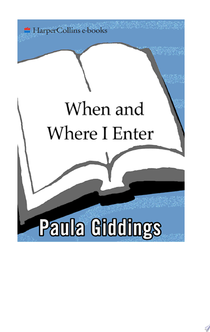
When and Where I Enter
“History at its best—clear, intelligent, moving. Paula Giddings has written a book as priceless as its subject”—Toni Morrison Acclaimed by writers Toni Morrison and Maya Angelou, Paula Giddings’s When and Where I Enter is not only an eloquent testament to the unsung contributions of individual women to our nation, but to the collective activism which elevated the race and women’s movements that define our times. From Ida B. Wells to the first black Presidential candidate, Shirley Chisholm; from the anti-lynching movement to the struggle for suffrage and equal protection under the law; Giddings tells the stories of black women who transcended the dual discrimination of race and gender—and whose legacy inspires our own generation. Forty years after the passing of the Voting Rights Act, when phrases like “affirmative action” and “wrongful imprisonment” are rallying cries, Giddings words resonate now more than ever.
See all

Racecraft
Most people assume that racism grows from a perception of human difference: the fact of race gives rise to the practice of racism. Sociologist Karen E. Fields and historian Barbara J. Fields argue otherwise: the practice of racism produces the illusion of race, through what they call "racecraft." And this phenomenon is intimately entwined with other forms of inequality in American life. So pervasive are the devices of racecraft in American history, economic doctrine, politics, and everyday thinking that the presence of racecraft itself goes unnoticed. That the promised post-racial age has not dawned, the authors argue, reflects the failure of Americans to develop a legitimate language for thinking about and discussing inequality. That failure should worry everyone who cares about democratic institutions.
See all

American Slavery, American Freedom
"Thoughtful, suggestive and highly readable."—New York Times Book Review In the American Revolution, Virginians were the most eloquent spokesmen for freedom and quality. George Washington led the Americans in battle against British oppression. Thomas Jefferson led them in declaring independence. Virginians drafted not only the Declaration but also the Constitution and the Bill of Rights; they were elected to the presidency of the United States under that Constitution for thirty-two of the first thirty-six years of its existence. They were all slaveholders. In the new preface Edmund S. Morgan writes: "Human relations among us still suffer from the former enslavement of a large portion of our predecessors. The freedom of the free, the growth of freedom experienced in the American Revolution depended more than we like to admit on the enslavement of more than 20 percent of us at that time. How republican freedom came to be supported, at least in large part, by its opposite, slavery, is the subject of this book. American Slavery, American Freedom is a study of the tragic contradiction at the core of America. Morgan finds the keys to this central paradox, "the marriage of slavery and freedom," in the people and the politics of the state that was both the birthplace of the Revolution and the largest slaveholding state in the country.
See all

Showdown
Thurgood Marshall brought down the separate-but-equal doctrine, integrated schools, and not only fought for human rights and human dignity but also made them impossible to deny in the courts and in the streets. In this stunning new biography, award-winning author Wil Haygood surpasses the emotional impact of his inspiring best seller The Butler to detail the life and career of one of the most transformative legal minds of the past one hundred years. Using the framework of the dramatic, contentious five-day Senate hearing to confirm Marshall as the first African-American Supreme Court justice, Haygood creates a provocative and moving look at Marshall’s life as well as the politicians, lawyers, activists, and others who shaped—or desperately tried to stop—the civil rights movement of the twentieth century: President Lyndon Johnson; Congressman Adam Clayton Powell Jr., whose scandals almost cost Marshall the Supreme Court judgeship; Harry and Harriette Moore, the Florida NAACP workers killed by the KKK; Justice J. Waties Waring, a racist lawyer from South Carolina, who, after being appointed to the federal court, became such a champion of civil rights that he was forced to flee the South; John, Robert, and Ted Kennedy; Senator Strom Thurmond, the renowned racist from South Carolina, who had a secret black mistress and child; North Carolina senator Sam Ervin, who tried to use his Constitutional expertise to block Marshall’s appointment; Senator James Eastland of Mississippi, the head of the Senate Judiciary Committee, who stated that segregation was “the law of nature, the law of God”; Arkansas senator John McClellan, who, as a boy, after Teddy Roosevelt invited Booker T. Washington to dinner at the White House, wrote a prize-winning school essay proclaiming that Roosevelt had destroyed the integrity of the presidency; and so many others. This galvanizing book makes clear that it is impossible to overestimate Thurgood Marshall’s lasting influence on the racial politics of our nation.
See all
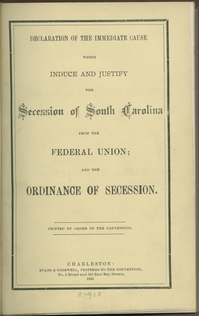
Avalon Project - Confederate States of America - Declaration of the Immediate Causes Which Induce and Justify the Secession of South Carolina from the Federal Union
And now the State of South Carolina having resumed her separate and equal place among nations, deems it due to herself, to the remaining United States of America, and to the nations of the world, that she should declare the immediate causes which have led to this act.
See all
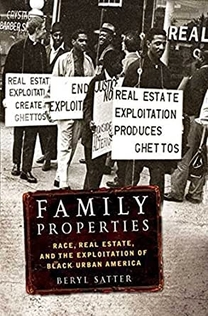
Family Properties
Part family story and part urban history, a landmark investigation of segregation and urban decay in Chicago -- and cities across the nationThe "promised land" for thousands of Southern blacks, postwar Chicago quickly became the most segregated city in the North, the site of the nation's worst ghettos and the target of Martin Luther King Jr.'s first campaign beyond the South. In this powerful book, Beryl Satter identifies the true causes of the city's black slums and the ruin of urban neighborhoods throughout the country: not, as some have argued, black pathology, the culture of poverty, or white flight, but a widespread and institutionalized system of legal and financial exploitation. In Satter's riveting account of a city in crisis, unscrupulous lawyers, slumlords, and speculators are pitched against religious reformers, community organizers, and an impassioned attorney who launched a crusade against the profiteers—the author's father, Mark J. Satter. At the heart of the struggle stand the black migrants who, having left the South with its legacy of sharecropping, suddenly find themselves caught in a new kind of debt peonage. Satter shows the interlocking forces at work in their oppression: the discriminatory practices of the banking industry; the federal policies that created the country's shameful "dual housing market"; the economic anxieties that fueled white violence; and the tempting profits to be made by preying on the city's most vulnerable population. Family Properties: Race, Real Estate, and the Exploitation of Black Urban America is a monumental work of history, this tale of racism and real estate, politics and finance, will forever change our understanding of the forces that transformed urban America. "Gripping . . . This painstaking portrayal of the human costs of financial racism is the most important book yet written on the black freedom struggle in the urban North."—David Garrow, The Washington Post
See all

Making the Second Ghetto
This book analyses the expansion of Chicago's Black Belt during the period immediately following World War II. Even as the civil rights movement swept the country, Chicago dealt with its rapidly growing black population not by abolishing the ghetto, but by expanding and reinforcing it. The city used a variety of means, ranging from riots to redevelopment, to prevent desegregation. The result was not only the persistence of racial segregation, but the evolution of legal concepts and tools which provided the foundation for the nation's subsequent urban renewal effort and the emergence of a ghetto now distinguished by government support and sanction. This book not only extends our knowledge of the evolution of race relations in urban America, but adds a new dimension to our perspective on the civil rights era - an age marked by the rise of Martin Luther King, Jr. and the explosion of northern cities in the wake of his assassination.
See all
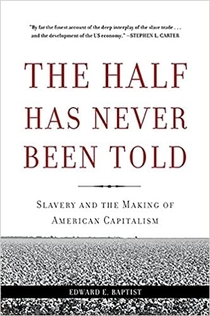
The Half Has Never Been Told
A groundbreaking history demonstrating that America's economic supremacy was built on the backs of slaves Americans tend to cast slavery as a pre-modern institution -- the nation's original sin, perhaps, but isolated in time and divorced from America's later success. But to do so robs the millions who suffered in bondage of their full legacy. As historian Edward E. Baptist reveals in The Half Has Never Been Told, the expansion of slavery in the first eight decades after American independence drove the evolution and modernization of the United States. In the span of a single lifetime, the South grew from a narrow coastal strip of worn-out tobacco plantations to a continental cotton empire, and the United States grew into a modern, industrial, and capitalist economy. Told through intimate slave narratives, plantation records, newspapers, and the words of politicians, entrepreneurs, and escaped slaves, The Half Has Never Been Told offers a radical new interpretation of American history.
See all

The Night of the Gun
Coates referenced 13 books, urging readers to explore the world of black literature and beyond.

The Fire Next Time
Basically the finest essay I’ve ever read. It’s technically two essays but it feels like one. Baldwin refused to hold anyone’s hand. He was both direct and beautiful all at once. He did not seem to write to convince you. He wrote beyond you.
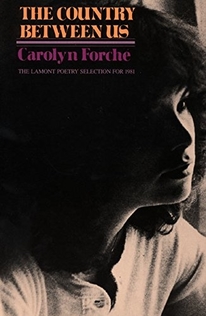
The Country Between Us
The book opens with a series of poems about El Salvador, where ForchÉ worked as a journalist and was closely involved with the political struggle in that tortured country in the late 1970's. ForchÉ's other poems also tend to be personal, immediate, and moving. Perhaps the final effect of her poetry is the image of a sensitive, brave, and engaged young woman who has made her life a journey. She has already traveled to many places, as these poems indicate, but beyond that is the sense of someone who is, in Ignazio Silone's words, coming from far and going far.
See all

Neon Vernacular
Probably my favorite living poet. No one else taught me more about how important it was to think about how words make people feel. It’s not enough for people to know something is true. They have to feel it’s true.

Sweet Soul Music (Enhanced Edition)
History of soul music, told in profiles. I read this is as young man really trying to understand what journalism and history meant. Spent a lot of time meditating on Sam and Dave after this one.

The Thirty Years War
God, I love this book. It’s the history of an utterly depressing war with no real nobility that ultimately descends into cannibalism. Right up my alley.

Battle Cry of Freedom
The definitive history of the Civil War. One of the greatest works of history I’ve ever read and arguably the best one-volume history in existence.

The Waterworks
What a strange and beautiful book. The story of a postbellum American newspaper editor investigating the undead. Doctorow’s most underrated work.

Postwar
A book that deeply informs my journalist sense. Writers — particularly American writers — constantly feel the pull of solutionism, the desire to assure their readers that there is a way out, even when there isn’t. Judt refused this. History, he understood, does not exist to comfort us.
See all
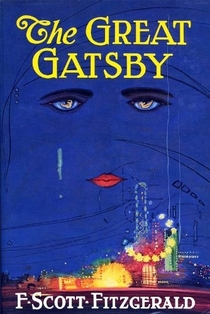
The Great Gatsby
I'm a sucker for efficiency. This book gets so much out of what is, ultimately, a rather slim story. I adore it.
